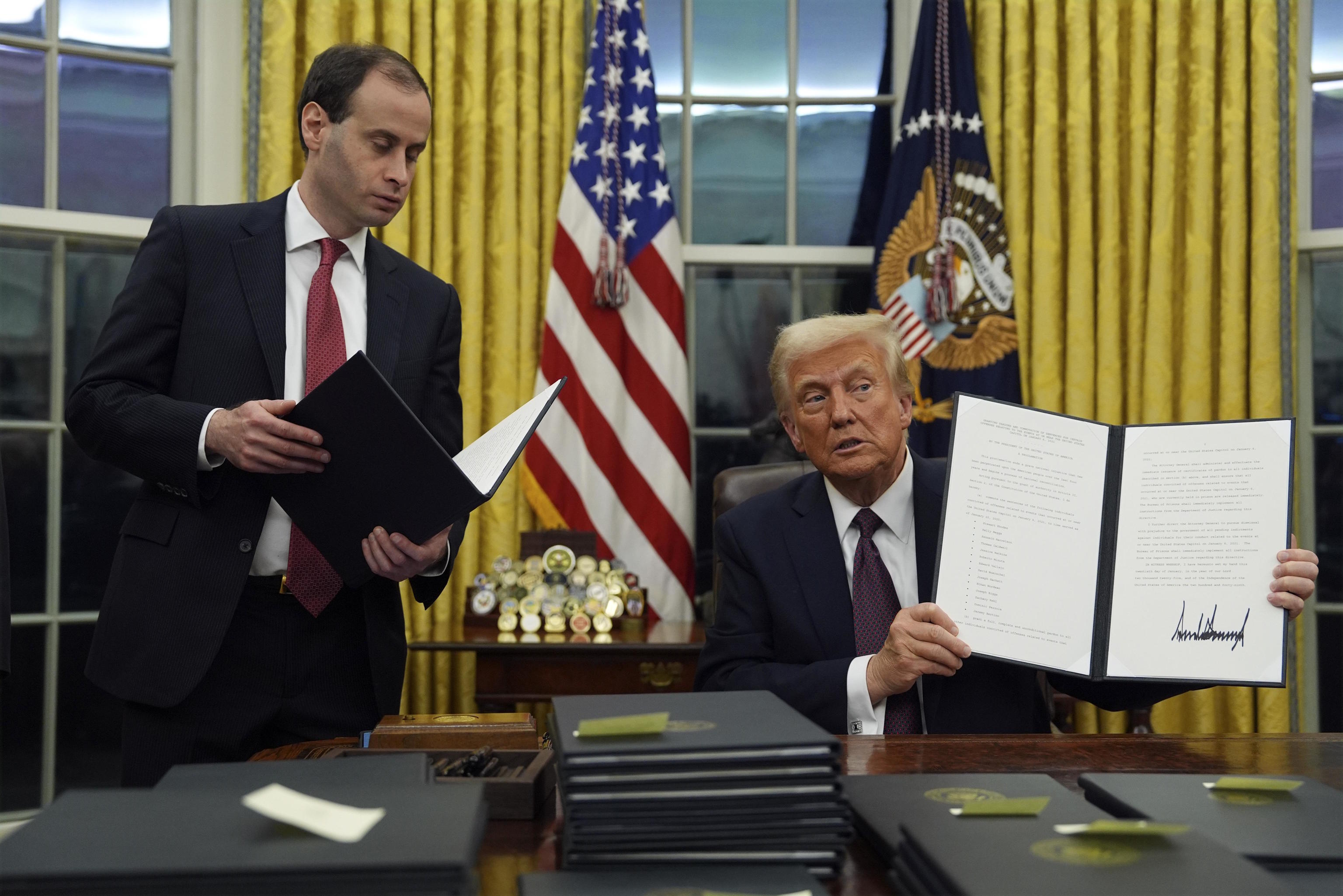The new President of the United States, Donald Trump, is very clear that Spain's defense spending remains "low, very low," clearly less than the 2% committed by NATO allies in 2014 or the 3% or 5% he would like from all allies. What Trump is not so clear about is which other groups our country belongs to, leading to an embarrassing situation and unique threats.
Responding to journalists' questions from his desk in the Oval Office, while signing one executive order after another of all kinds, the president has shown his displeasure with the Spanish government's defense spending contribution. But then, in a strange confusion, he linked that situation to something unexpected and incorrect: the alleged membership in the BRICS.
BRICS is the group of countries formed by Brazil, Russia, China, India, and South Africa, to which others would later join or promise to join, such as Egypt, the United Arab Emirates, Iran, Ethiopia, or Argentina before Javier Milei. However, Trump seems to think that Spain is one of them, despite being a member of the European Union or NATO. Therefore, he has threatened to impose tariffs on our products of up to 100%, as part of his new trade policy.
"Aren't they a nation of the BRICS? They are part of the BRICS. Do you know what they are? You will find out. If they want to do it, I think it's fine, but they will have 100% tariffs on businesses they conduct with the United States," he concluded. Minutes later, in response to other journalists' questions, he reiterated the BRICS, saying they were "six or seven countries" and that "everyone wants to take advantage of the US."
In his speech on Monday at the Capitol, Trump did not mention specific tariffs, nor did he sign any decree on the matter, but he emphasized that the new trade policy will bring in millions in contributions from foreign countries. Later, from the White House, he also reiterated that he has not ruled out his threat from a few months ago to Canada or Mexico. And he insisted that they could impose tariffs of up to 25% starting February 1, but without definitively confirming it.
By abruptly reversing up to 78 executive orders approved by the Biden administration, Trump has rendered decisions such as the removal of Cuba from the list of state sponsors of terrorism, which was carried out just days ago in exchange for the release of over 500 political prisoners from the island, meaningless.
Another issue the president addressed is the situation in Venezuela. When asked if he still maintains the commitment to force Nicolás Maduro to leave power after the US considered that the elections were won by Edmundo González, the president simply stated that the country "does not need Venezuela's oil; we will probably stop buying it. That will have a great effect on Venezuela," without specifying if there will simply be no purchases or if he will push for another embargo.
In recent months, despite unfulfilled promises to hold elections, the US allowed companies like Chevron to resume buying Venezuelan oil or tar, mainly to prevent China and other countries from taking it at a low price, becoming more competitive than the US economy.
